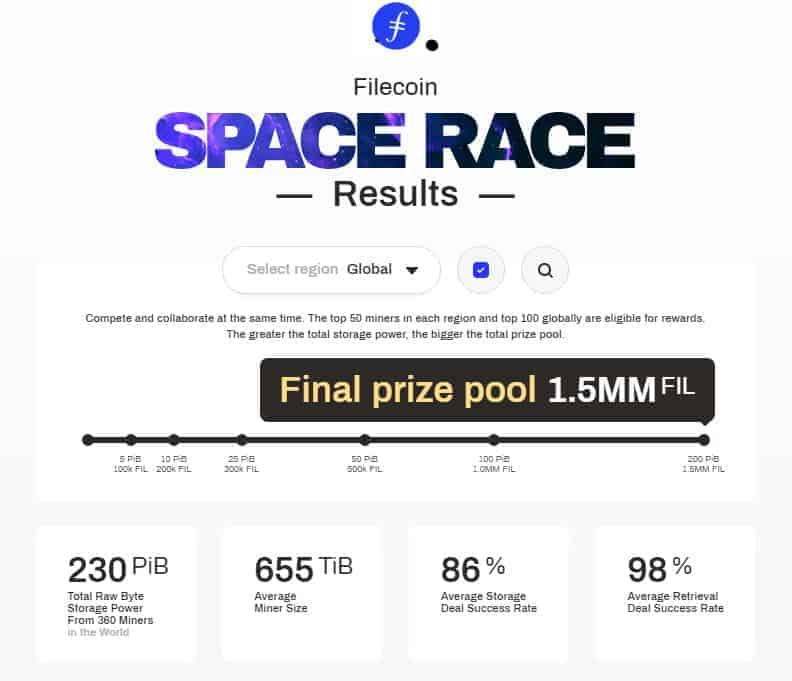Space Race’s success prompts Filecoin to announce Space Race 2 | Space Race Episode 3
Space Race miners accumulate 230 PiB of storage as independent miners show why they’re the day-to-day heroes.
This article is based on a sponsored video series in partnership with Protocol Labs and Decrypt.
Miners have crushed expectations by onboarding more than 200% of the initial target set during Filecoin’s Space Race, the competition to onboard decentralized storage on its testnet.
Following this success, Filecoin (FIL) has announced a second Space Race to continue to stress-test its network until Oct 5, to prepare for its mainnet launch.
As the first Space Race came to an end, a total of 230 pebibytes (PiB), or around 260 million gigabytes (GB) of storage power was accumulated over a three-week span. This performance prompted the Filecoin team to unlock a new tier of rewards.

The first Space Race’s final week highlighted critical stress-testing operations, such as chain upgrades to test the speed of network upgrades, distributed randomness (drand) outages or the outage of the feature that serves as a publicly verifiable unbiased source of randomness, and updates to stress test the system.
“Chain upgrades are very important in ensuring that the protocol stays up to date,” says Eric Tu of ChainSafe.
While last week’s Space Race featured the top-performing teams, this week shed light on the individual miners – the protagonists for Filecoin’s decentralized network. In a real-world scenario, these individual miners will be the people who can efficiently serve storage to their local market.
“This is a really big game-changer both for the internet but also in general,” said Benjamin Hoejsbo, the 9th-ranking indie miner on the European leaderboard. “We see that all the power is getting so centralized now, that we might see a shift where this goes the opposite way.”
So why are individual miners so critical for the decentralized web and Web 3.0? Today, the Hypertext Transfer Protocol (HTTP) dominates the online world by structuring the current World Wide Web on ownership and access. The InterPlanetary File System presents an alternative for the decentralized Web 3.0 by dispersing ownership of the web while supporting user access and participation. In a decentralized web, files will be distributed among storage providers around the world to eliminate single points of failure – which means no more “HTTP ERROR 404”.
While indie miners contributed to average storage success rate of 86% and an average retrieval success rate of 98%, IPFSMain and 6Block maintain their positions at first and second, respectively. However, IPFS Force was unable to maintain its position at third, conceding the spot to STCloud&Linden.
To learn more about the decentralization of storage in Web 3.0, or more information on Space Race and Space Race 2, visit filecoin.io.